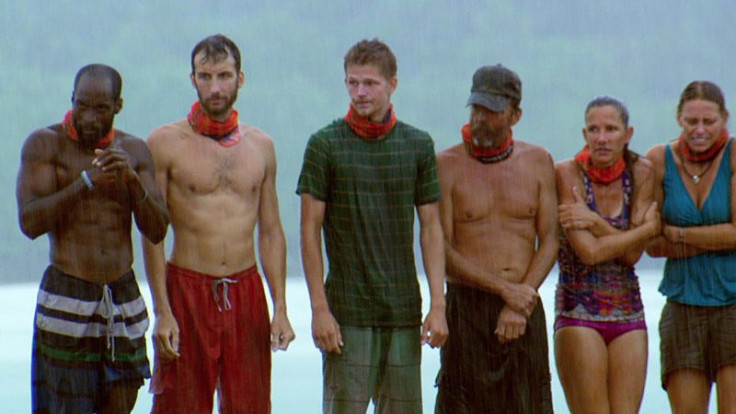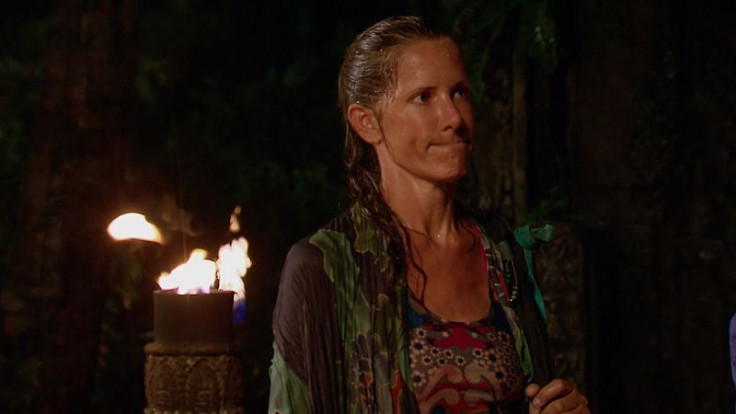'Survivor' Still Thriving After 15 Years; Is A Sense Of Destiny Fueling Best Season Ever In 'Second Chance'? [POLL]

“Survivor” is turning towards the home stretch of its 31st season -- yes, 31 seasons! That is a long time. When the long running CBS reality show first premiered in 2000, Bill Clinton was still president and perusing spoilers for the show meant getting online via a dial-up connection. A lot has changed since then, but “Survivor” is, well, still surviving.
Actually, no, it is thriving. In “Second Chance,” the current season, the show has once again adapted to stay fresh for fans -- inviting back a group of runner-ups, fan favorites and journeymen to duke it out for a shot at “Survivor” redemption. The result, thanks to an unprecedented sense of destiny and purpose among the cast, has been the best season in years.
In Paulo Coelho’s 1988 novel “The Alchemist,” a Spanish shepherd boy named Santiago journeys to Egypt in pursuit of a mythical treasure, not unlike how the 20 castaways of “Survivor: Second Chance” descended on a foreign land in pursuit of a million-dollar prize. Santiago believes the treasure is his destiny or, as a wise, old king he meets tells him, his “Personal Legend.” The king tells Santiago, “When you want something, all of the world conspires in helping you achieve it.” Through this lens, the shepherd views every success and setback in pursuit of his treasure as part of a pre-ordained path to realization of his dream. Many of the “Second Chance” castaways have taken a similar philosophy towards winning this season of “Survivor,” ratcheting up the emotional stakes of the already harrowing competition.
Take for instance Andrew Savage, who, before Kelley Wentworth’s hidden immunity idol sent him packing, seemed to believe the twists and turns of the game existed solely to serve his personal “Survivor” narrative. The tribe swap “saved him,” while other players’ deception and lies -- though a part of the game he more than participated in -- were, to him, almost morally inexcusable interruptions to his game. (He still does not seem to have forgiven Kass in the latest episode of the “Ponderosa” YouTube series.)
Then, there is Stephen Fishbach, both a student and a critic of the game -- he writes a regular blog about the show for People Magazine -- who seems so sure he knows the perfect strategy for “Survivor” success that any deviation from his master plan is almost intolerable. In one camera confessional, he burst into tears lamenting his alliance’s decision to forego a possible chance to blind side perennial immunity threat Joe Anglim.
Watch Stephen get emotional on “Second Chance” below:
On the flip side of things is Ciera Eastin, who for the past few episodes has managed to stay alive despite a permanent seat as co-chair of the minority alliance, scheming to shake up the game at every possible moment. She has made a routine of chastising the remaining castaways for following the majority’s marching orders instead of “playing the game” and making a big move, as if some objectively noble gamesmanship -- that would fully benefit her, by the way -- should trump the other players’ instincts for self-preservation.
None of this is meant to be either personal or value judgment on any of the castaway’s personalities or strategies. These are all normal and, often, necessary mentalities and methods to last 30 days in the game. None of these types of players is new either, at least in and of themselves. What is remarkable about this season, though, is the high concentration of this type of player in the current cast. While there are always one or two players seemingly willing to do anything to win, this season it has often seemed like every player is willing to throw their closest ally under the bus just to make it to the next tribal council. No one wants to waste their "Second Chance."
When Kelly Wiglesworth was voted out in episode 9 Wednesday, she said, “It’s a much different game. It’s not my style. [The remaining players] can have at it.” The Season 1 runner-up is cut from the cloth of an old school “Survivor” archetype that does not seem to be as present this season. She was determined to “stay true to herself,” avoid any back stabbing and keep her head down at camp. Those are all admirable goals, but in the face of a game filled with gamers under a nothing-but-winning-matters mentality, she did not stand a chance.

This is a season where the most abrasive player at the onset of the game -- Abi-Maria Gomes -- has survived thus far because everyone’s eyes are down the road at the final tribal council, where it helps to be surrounded by unlikable people. This is a season where Jeremy busted his hump to find a hidden immunity idol, despite already having one in his back pocket. This is a season where players with dubious reputations from their first seasons -- Kass and Shirin -- have struggled to carve out new niches, as the game seems determined to existentially punish them for their “original sins.” Literature has been evoked throughout “Second Chance” -- Stephen dubbed Ciera, Kelley, and Abi the “witches” after the characters from Shakespeare’s “Macbeth" -- and the game has arguably been changed irreparably.
At episode 9’s tribal council, Stephen spoke at length about an evolution in “Survivor” strategy away from long term alliances and towards “voting blocks” of temporary allies.
“I absolutely think the game is evolving,” said Stephen. “Alliances are not as clear cut and defined as they have been in the past.”
The alleged shift is absolutely a result of a more intense sense of self interest among the castaways then has ever been seen on the show before, born out of, frankly, the most competitive cast in “Survivor” history.
This is not an accident. “Survivor” engineered this dynamic when they chose to produce a season comprised of returning players chosen from previous seasons by the show’s fans. It is evolutions like this that have helped “Survivor” outlast dozens of imitator reality series for 15 years. By introducing carefully plotted twists in the format -- from hidden immunity idols, to exile island, to pairing family members on tribes -- the show has kept things interesting for 31 seasons.
The ratings for “Survivor” may be a far cry from what they were when the show premiered to a pre-Netflix, pre-cable boom world. However, the show still nets above 11 million average viewers per episode, retaining one of the most loyal audiences on TV. It is not hard to see why. On this season, the castaways are chosen by fans from previous seasons and younger players, like Spencer Bledsoe, got to square off against their “Survivor heroes,” like Kelly from Season 1, in a pseudo-fantasy “Survivor” situation. In many ways, the show is reality TV’s answer to the Marvel Cinematic Universe, with intersecting season drama and returning heroes and villains.
At the end of the day, “Second Chance” has proven that the secret to the success of “Survivor” is that its evolutions over the years have been less about the titillation of the twist itself and more about how the people in the game have to react to them. Like any great television show of any genre, character is key. This season of “Survivor” has the best cast of characters in years and fans are nowhere near voting “Survivor” off of television anytime soon.
Is "Survivor: Second Chance" the best season ever? Take the poll below and tweet your thoughts to @Ja9GarofaloTV:
© Copyright IBTimes 2024. All rights reserved.






















